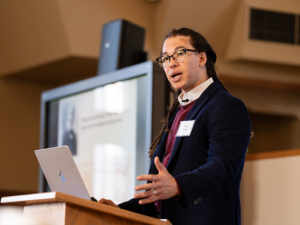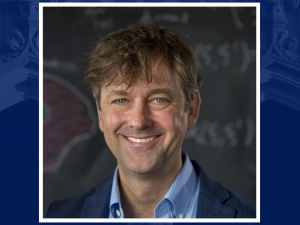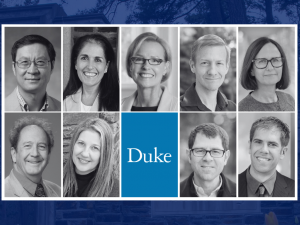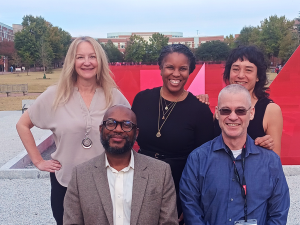Mine Çetinkaya-Rundel Appointed Director of the First-Year Experience in Trinity College of Arts & Sciences
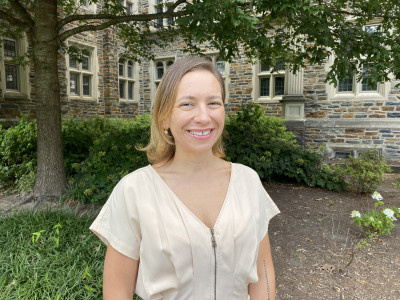
Mine Çetinkaya-Rundel, professor of the practice and the director of undergraduate studies in Statistical Science, has been appointed director of the First-Year Experience in Trinity College of Arts & Sciences.
Çetinkaya-Rundel will play a pivotal role in overseeing the launch of the First-Year Experience, a signature component of the new Arts & Sciences curriculum being implemented in Fall 2025. All incoming first-year students will participate in the experience through either the longstanding FOCUS program or the new Constellations cohorts.
Both Constellations and FOCUS provide the keys to a transformational educational experience as students engage in deep learning through multidisciplinary approaches to specific topics, themes and disciplines in groups of related courses.
“Professor Çetinkaya-Rundel is exactly the right person to step into this inaugural role,” said Deborah Reisinger, dean of undergraduate education in Trinity College. “She has been deeply involved in the new Arts & Sciences curriculum as a member of the Trinity Curriculum Development Committee and chair of the Curriculum Implementation Committee. She has also served on the First-Year Constellations Committee.”
In addition to working with the director of FOCUS, Professor Edna Andrews, and the director of Constellations, Michael Domeracki, Çetinkaya-Rundel’s new role will include partnering with the Office of University Assessment to monitor the student experience as it unfolds, seeing how well the learning and community-building goals of the First-Year Experience are being met, and proposing and implementing enhancements.
She will also work to ensure disciplinary diversity in the classes offered within FOCUS clusters and Constellations, as well as across topics explored in each program. The goal is to offer a variety of options in the natural sciences, social sciences, arts and humanities so that each incoming student can find opportunities that will excite and inspire them.
“The First-Year Experience is important because, for many students, their first year at Duke is the first time they're exploring life, both intellectual and personal, on their own with much more freedom than they’ve previously had,” Çetinkaya-Rundel said.
“Whatever they build during that year in terms of intellectual interests, things they might pursue academically, friendships they make — these are all really important. FOCUS has been a very successful program for many years, both for the intellectual diversity and community-building it provides. Introducing Constellations gives us the opportunity to open up these types of cohort-based learning experiences to all incoming first-year students.”
“Mine embodies a perfect combination of strategic insight and deep care for student learning,” said Reisinger. “In this new position, she’ll help ensure that all incoming students — whether they choose to participate in FOCUS or in Constellations — have access to distinctive, equitable and intellectually vibrant experiences that will shape their time at Duke from Day One.”
Çetinkaya-Rundel stressed that she will also serve as a resource for faculty who are interested in learning more about the First-Year Experience. A call for proposals for 2026-2027 Constellation topics will go out early in Fall 2025. “Whether you are an individual faculty member, a program director or a chair wondering how your department can take part, I welcome any conversations and am happy to share information,” she said.
